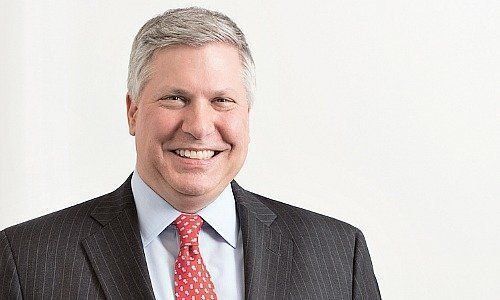UBS: The American Dream
The Americas are the motor behind the wealth management of UBS. The bank is currently revamping its business in that crucial region, hoping that it will receive a welcome boost from clients.
UBS and the U.S. – a relationship with a long successful past, and also one ladden with a legal legacy that cost the Swiss bank huge amounts of money. And yet, the region as such has so many opportunities on offer for the Swiss bank, which had long outgrown its own domestic market.
Since February 2018, the U.S.-based brokers at UBS and the Swiss private bankers are sitting in the same boat, having become part of the new super-division dubbed Global Wealth Management. Together they must get their rich clients to entrust them more of their assets. The purpose of the huge merger project was to design a uniform, global service available to the clients wherever they might be at any one moment.
More Deals With the Super Rich
At the most recent investors' day in November of 2018, it became apparent that the bank placed a lot of hope in the business with U.S. clients. Sergio Ermotti, the UBS chief executive officer, launched the business with U.S. expats in time for the event to present the audience with a new growth initiative at the super-division. Estimates make believe that some 7 million wealthy U.S. citizens are working and living abroad.
The bank is currently redoubling its efforts to get the expat community to boost its business. And timed for the release of its first-quarter figures, UBS launched the next big bid for the U.S. business courtesy of the «Bloomberg» news organization. UBS said it was merging teams from wealth management, trading and the corporate clients' business.
In the Spotlight
The bank hopes that the bid will help it attract more deals and trading opportunities – with an eye on a super rich clientele, the so-called UHNWI. The focus of the exercise was to accelerate growth, said Tom Naratil (pictured below), who is responsible for the business in the U.S. as the co-leader of the super-division.

The division, which is the core business of the bank, has not been at its most dynamic self in recent months. Pretax profit declined by more than a fifth from the first quarter of 2018 to the same quarter in 2019. Revenues were down 9 percent and invested assets were flat at $2,432 billion.
The U.S. part of the business was standing out not least because its sheer size. UBS wealth managers generated a pretax of $333 million in the first quarter, almost three times as much as their Swiss counterparts – it also has almost ten times as many relationship managers, or a total of 6,790. And yet, pretax was down year-on-year and the cost-income-ratio dropped to 85 percent from 84 percent. By contrast, invested assets were up to $1.3 trillion from $1.26 trillion.
With this set of numbers it comes as little surprise that the bank is launching new projects in the region and revamping its business. «Onwallstreet» (behind paywall) recently reported that the bank was merging units and taking a close look at the management. Regions mentioned were the Great Lakes, the Middle East, Texas and San Francisco. The branch in Silicon Valley however, which has seen powerful growth, received more firepower.
Cutting Down at the Front End
The changes initiated by the management were not the first under the guidance of Naratil. The veteran UBS executive wanted to end the expensive merry-go-round of U.S. brokers, whereby advisers and brokers work almost as independents, offering their services to whoever pays the most. The system engenders a sense of mercenary loyalties, weighing on profitability of U.S. banking.
Naratil responded to the development with some fairly tough measures – with modest results. The cost-income-ratio improved substantially over the past two years and UBS advisers now are known as the most productive in the industry. The number of people on the front declined to 6,790 from 6,956 over the past year. This will make it harder to lure more rich clients to the bank.
UBS said in a statement that it was still hiring selectively in the U.S., adding experienced bankers with extensive client networks.
A Billionaire Meeting at the Organic Farm
- Page 1 of 2
- Next >>




























